O Compliance, em linhas gerais, é um termo que mostra que uma determinada instituição age segundo regras, a partir de diretrizes estabelecidas interna e externamente para cada tipo de negócio. Resumidamente, é obedecer de forma legal as políticas de controles celebrados com as empresas e seus stakeholders. No Brasil, o tema vem ganhando força, pois alguns Estados já diferenciam em seus editais, para fornecimento de insumos e serviços, empresas que possuem uma certificação de Compliance.
A São Judas Materiais Médicos, que atua no segmento de distribuição de insumos na área da saúde no Norte e Nordeste do país, tem seus processos bem definidos, como explica o diretor da empresa, Gustavo Barros. “Zelamos em nossa essência pelos princípios éticos e de não-corrupção perante a todas as instituições, não só públicas como privadas. Então, nesse segmento, o Compliance vem para oficializar todas as regras que hoje praticamos”.
O segmento de distribuição de materiais médicos é bem competitivo segundo Gustavo. Para ele, o Compliance destaca a São Judas das demais empresas do setor. “O Compliance nos torna o diferencial no mercado, pois formalizamos tudo que temos de valores e evidencia nosso comprometimento com as práticas legais existentes no país”, afirma.
No âmbito da saúde, seja nos órgãos públicos ou nas instituições privadas, são enfatizadas as questões de observância da Lei Anticorrupção e comprovação de que as empresas privadas agem conforme diretrizes legais. O Compliance garante que a empresa está em sintonia com esses pontos. Os funcionários da empresa fazem parte deste processo. Para eles e para todos os parceiros é definido um Código de Conduta para que essa busca por uma atuação ética seja consolidada.






